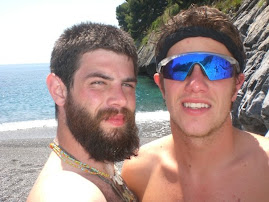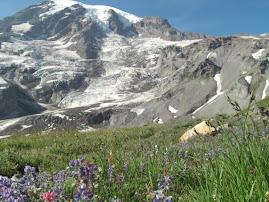I suppose a delirious plane ride is as good a time as any to write this.
We arrived in Marrakech to our friend Steve’s open arms. It was great to see him. Marrakech, in all of its quirky glory, is a wonderful city. Much more diverse than I had anticipated, “The Kech” has seen a boom in tourism in recent years and is subsequently much more liberal than most Arab cities. Jeema al Fna, a main attraction, is a giant open square full of snake charmers and orange farmers, monkey trainers and wok flamers, dancers, musicians, and tea technicians. The drums and commotion of life in this square sound off long into the night. Just off Jeema al Fna is the endless Medina, or back alley markets. These twist and turn in all directions for what feels like miles. We got lost several times. You can find anything from Djalalbas (traditional robe worn by men) to leather goods and teapots, jewelry, spices, metal and woodwork. If they don’t have what you want, they know someone who does. The shop workers will stop at nothing to coax you into their store. “Hello my friend! English? Deutch? Frances? Espanol? I give you good price.” While traveling with my bearded counterparts, a popular heckle was “Ali Baba! Come here!” You can google “Ali Baba” for the story behind that.
On every corner of this eccentric city you can find restaurants and café’s selling Couscous (the dish so nice they named it twice), Tajine’s (traditional dish), and sweet mint tea. Traveling on a budget has created some very amazing and unique experiences for us. We ended up staying at a popular Peace Corps hotel that Steve knew of. We payed 30 Durham’s (3 Euros or $4) and got to sleep on the rooftop terrace of the hotel with mats and heavy blankets. I was awe struck by the view of Marrakech from this rooftop. I even enjoyed the 4 AM wake up to every Mosque in the city blasting their first call-to-prayer of the day. The call-to-prayer would start quietly from a very distant Mosque and slowly crawl its way closer to your doorstep and then inside your ear.
There are a few annoyances in this peculiar city, the main one being the hash dealers. Every 5 steps the three of us would be propositioned by some punk to purchase the national nugget. We did find ways to release some of the frustration by devising creative tactics to avoid/distract these ganja goons. The flying V, the scatter, the swim move, and the spin move. Our responses usually went something like “No, Ethiopian, click pop tweedle” or “did you make the last call-to-prayer?” or we would just make a loud fart sound at them. Mature, I know.
Finally we decided it was time to head out to Steve’s Berber village. Berber are the native people of Morocco and are generally regarded as hillbilly hicks by the rest of the population. Luckily Steve speaks Tashlheet, a Berber language, and we were welcomed at many places with a strong sense of Berber pride. We enter the bus station, somehow manage to dodge the dank delinquents, and buy our ticket on the cheapest “Suk” bus. A Suk is a weekly market that each town/village has and it is where Moroccans do most of their food shopping and trading. The Suk bus is the people’s bus, because it is the cheapest and it stops at all of the Suk’s along the way. On our way to the High Atlas Mountains, where Steve’s village is, we have to cross the Tishka pass- a series of impressive switchbacks. Before we even start the ascent the ticket taker is handing out loads of plastic bags to the passengers. That’s right ladies and gentlemen, we entered Barf-o-rama 9000. Steve and I had an impressively fluidic family sitting in front of us, passing their infant between them while they took turns expelling their lunch. After 4 or 5 hours of beautiful mountain passes and High Atlas countryside we reach Aguim. Aguim is a small town. If you googled it, I imagine the only results that would turn up would be a bus website listing it as a stop on the way to Ourtzazet. Its small. The type of town that a tourist might pay an expensive guide to go see an “authentic” Berber village. This is where we catch our “taxi.” A regular sedan taxi, we end up fitting 8 adult men in this rig- 4 in the back and 4 in the front sandwiching the driver. An hour later, after more mountains, villages, and mosques we arrive in Tidili. The people in the yet smaller village of Tidili have seen maybe a handful of foreigners in their lifetime. There are no hash hooligans here. There is a small Suk there and even a modest post office (Steve’s closest). Not there yet.
We pile into a Landrover for another 45-minute drive further into the depths of these ancient snow-capped mountains. Along the way the paved road turns into dirt and gravel. Village after village of farmers and children all stopping what they are doing for a moment to watch the automobile drive by. A stream here and there crossing the road, providing a source to wash clothes while supplying water the tiered fields below. As Steve exchanges stories wit the driver, I cannot help but think about how long these people have survived out here. You look at their faces and you know they are an OLD people. Despite Morocco being a country ravished and conquered by countless dynasties, these people have endured by escaping to these mountains, where others dare not go. Their perseverance shows in the authenticity of their culture. Some of these people now have electricity and television, but still make their own bread everyday, have dirt floors, poop into a hole in the ground, and transport goods by donkey. The driver finally stops at an insignificant turn in the road, no different than any other for the past 20 miles, and we get out with our backpacks. From there Steve finds a narrow dirt path among the red rocks and green nameless brush and starts walking. We hike 3 or 4 kilometers off of the road up into his tiny village, La Moda, which literally means “the place.” We are not in Kansas anymore. The landscape is stunning. The blue-sky contrasts with the desert mountains to create a depth that is unmatched. The green tiers of wheat add color to the tan village that would otherwise disappear into the shaded valley. Children are playing with long sticks in the aqueducts that run down the street. Old men sit on stones after digging out the irrigation lines to flood the next field. Women sing the Koran while tending to the wheat fields. The people were very kind and accepting of us foreigners and I was astonished by their hospitality.
There was a certain point in which I felt guilty being there. Guilty because, unlike Steve, I had not lived in this country for 14 months. Contrite that I had not learned the ancient language that most people don’t even know exists. I had not invested enough of my heart to deserve seeing such beautiful rawness and inaccessible life. Regardless, I feel fortunate to have experienced such a special place and rare culture. I am thankful for many things in my life, but right now I am especially grateful that Steve could share with us his life in a remote Berber village in the High Atlas Mountains of North Africa.
kale is back
10 years ago



















1 comment:
So beautifully written! I almost feel like I experienced this myself. Maybe you should be a travel guide/writer.
Post a Comment